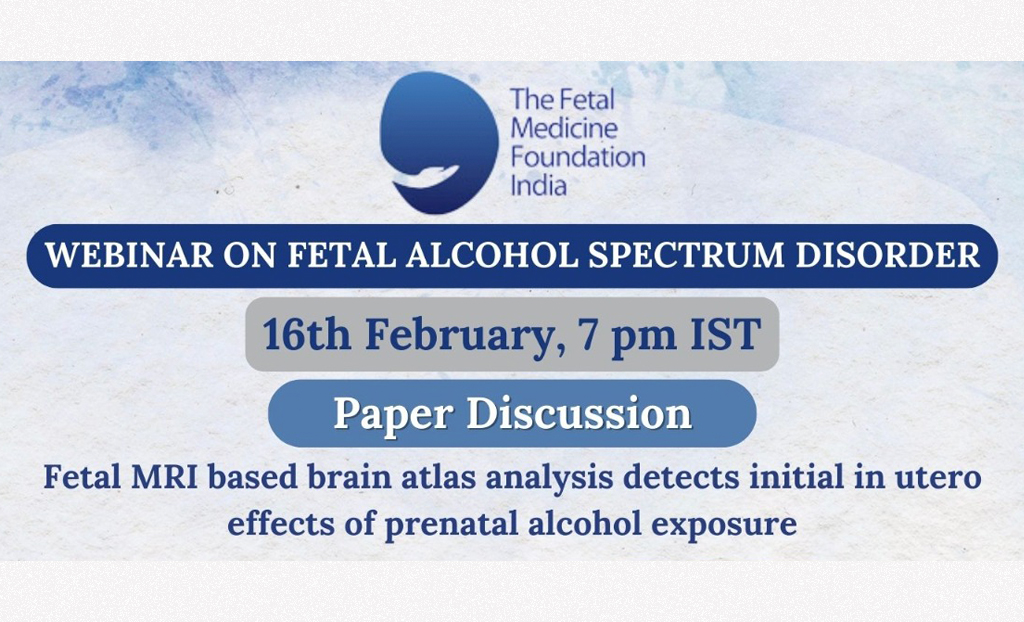Take home message – Webinar on Fetal Alcohol Spectrum Disorders (FASD)

Discussants and speakers –
- Prof Gregor Kasprian
- Dr Sumathi Natarajan
- Dr Patric Kienast
- Dr Marlene Stuempflen
- Dr Hemlata Bhatia
- Dr Mainsha Kumar
- Dr Saurabh Chopra
- Sophie Harrington
Hosts – Dr Anita Kaul, Dr Rachna Gupta, Dr Akshatha Prabhu
Study presented by Dr Marlene Stuempflen –
Stuempflen M, et al. Fetal MRI based brain atlas analysis detects initial in utero effects of prenatal alcohol exposure. Cereb Cortex. 2023 May 24;33(11):6852-6861. doi: 10.1093/cercor/bhad005
Presentation by Sophie Harrington – Importance of FASD, work being done by NOFASD Australia and Sharing Lived experience of FASD
Take home messages –
Periconceptional counseling
a) No amount of alcohol is considered safe to be consumed during pregnancy or breastfeeding.
b) It is necessary to ask history of alcohol intake to every woman and provide information and leaflets for awareness of FASD, however uncomfortable it may be for the clinician and the woman.
Counseling if exposed to alcohol:
a) In the women exposed to alcohol – there is 1/13 chance of child being affected with FASD, and 1/67 chance of being severely affected.
b) Early diagnosis of FASD is beneficial for better management and outcome of affected children, appropriate diagnosis and support services are needed to guide and support families.
Spreading Awareness:
Alcohol is general part of the society and one doesn’t need to be ashamed or feel guilty of accepting the fact that they take alcohol, no judgement or bias should affect the counselling and care.It is not just the woman but also the partner who needs to understand the significance of FASD, to be able to support alcohol abstinence in women planning pregnancy.
Antenatal Diagnosis of FASD:
There are no well proven ultrasound findings of FASD, however, very severe affection can lead to corpus callosal dysgenesis which may be picked up on ultrasound. Fetal MRI as a routine cannot pick up subtle cases of FASD, the current study used research tools to look at the differences in periventricular zone and corpus callosal volumes, these tools may be available in future once automated based on large studies.
Further research is needed in certain areas –
a) Role of paternal alcohol intake in the periconceptional period
b) How much time of abstinence from alcohol is needed before planning pregnancy
c) Better designed studies to correlate alcohol intake and effects in children, according to timing and amount of alcohol intake.
d) Tools for early diagnosis and support services for affected families.

